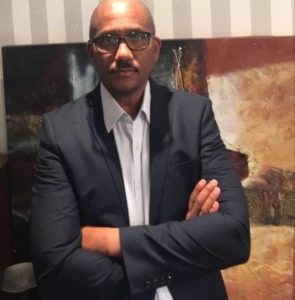Stakeholders Recommend Arming Private Security Personnel With Guns, Cutlasses

By Buba Gagigo
Managing Directors of two local security firms recommended their personnel be armed with guns or cutlasses amid surge in attacks.
The recommendation for the Government of The Gambia to allow personnel of the local security firms to use guns amid security concerns in the country was made by one Managing Director; while a proprietor of another recommended the use of cutlasses instead.
First to recommend in an interview with this medium was the Managing Director of ‘Vigilant Security, a private firm, when asked whether it is high time for the government to allow private firms to use arms amid security concerns in the country.
“Yes it’s high time. The reason why we said it is high time is because the crime rates are getting too much and even these criminals are using guns. We don’t know if it is original [real], fake or rubber bullets but to be on the safer side we should also train our people,” Haddy Faal suggested in an interview.
However, she stressed the need for the personnel to be trained before being allowed to use guns on duty.
“You cannot give anybody anything, if you don’t train the person. But if you make sure you train the person in a good way and give him materials. I think if you train them how to use it. I think the crime rates will be reduced,” Faal said
Managing Director Faal is confident that if the private security guards are well trained and equipped, they can complement the government’s efforts in strengthening national security.
“I hope that the government will help us to also send our guards for training, so that all these problems that are happening, guards will be able to support the police. So that if they need any state security and it is not enough and things are getting higher, they can communicate to security companies to help them with guards, “Haddy said.
Like Faal, Halifa Manneh, Managing Director, ‘Jallow Security’ another local firm is supportive of the use of guns by the personnel, but stressed the need for them to be trained before allowing them to use guns.
“We should train them first, they [security officers]should be well trained on how to handle guns before it is given to them. When you go to the army, they know how to shoot and there is a law that if you kill somebody you should be killed. For me, I’m in support of using guns. I believe whatever we should use should be in line with [the 1997] Constitution,” he said.
On the contrary, Lamin Gano, proprietor of ‘Five Star’ also a local security firm disagreed with the usage of guns by the personnel, but recommended to the government to allow them use cutlasses the same way they are allowed to use handcuffs and batons, which he said are not enough for the task.
“I think those things might not be enough (handcuffs and batons), probably cutlasses for self-defence because the thieves are going with those kinds of tools. They go with scissors, knives and you don’t respond to a knife with a batten, you don’t respond to a cutlass with a baton. A baton might not be effective to counter someone who is having a knife or cutlass,” he said.
Potential risks

However, reacting to the recommendations by the private security stakeholder, Sulayman Ben Suwareh , a UK based Gambian strategist and intelligence expert is opposed to the idea of arming private security personnel with guns or/and cutlasses.
He is of the view that the idea is a reactionary strategy, not a well thought out strategy.
“Arming the security guards with cutlasses and other weapons will affect the criminal by making them more inventive to access more superior weapons or make them use more violence. It can let the criminals move to more vulnerable areas to places that didn’t have the means to pay for arm guards. They can be more inventive in applying strategies that make them seize the weapons from the guards [and] in tune use the weapon seized to commit the crime rather than having to travel with their weapons,” he opposed.
Ben cited the issue of regulations as other problems associated with arming private security.
“If police are not routinely armed, how can you justify arming private security? What regulations are needed to protect the abuse of these weapons in the hands of the private security officers? How can we regulate to make sure the training and supervision of the officer prevail? What will be the cost to the consumer, if the recommendations are adopted as the training and extra red tape will cost the security companies more and that cost will be passed on to the consumer, which will ensure fewer people will be able to contract their services?” he said.
Suwareh recommended less-lethal weapons for personnel of the firms rather than sharing of information in early detections among the firms.
“If they require extra weapons for the safety of their guards and allow them to effectively do their job with confidence, let them consider less-lethal weapons like pepper spray. They develop a mechanism of network watch across different security companies based on the areas they operate. An example of this is if particular areas have more than one private security company operating they share their contact details to allow sharing of information in early detections and call up support from the neighbourhood network,” the strategist recommended.
The UK based Gambia analyst asserted that until The Gambia develops a comprehensive management plan in combating crime with the causes of crime, the problem [security challenges] will get worse, as a reactionary or a piecemeal approach is never a solution.
Efforts to reach the Ministry of Interior for comment proved unsuccessful.


Comments are closed.